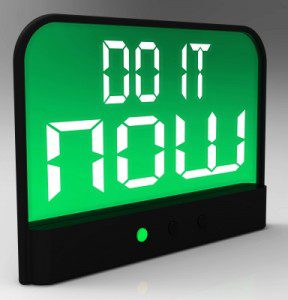 Most of us know the feeling of procrastination. It often goes like this:
Most of us know the feeling of procrastination. It often goes like this:
I know I have to complete that project by the end of week. Nothing in me wants to do it. I’ll go to the gym. Exercise will relax me and help me concentrate better. After the gym, you find yourself playing that new video game that everyone is talking about. Oh and your colleague wanted you to work on that fun advertising campaign. Finally, after days of not working on the project, you begin. However, there is no time to complete it. Hopefully, your boss will give you a pass for a few more days. You know you can get it done.
So why do we procrastinate when we know the results are usually negative? Is it the anxiety of doing it perfectly that keeps us from starting? Not really. Procrastination is about feeling good at the moment. It is giving in to the short term pleasure to avoid the long term task of getting something done.
Procrastination is tied to impulsivity. When stressed, the impulsive person becomes anxious and avoids dealing with the stressor. So the person does something else other than the task at hand. All that delay creates more distress. And when we look at the mental health tied to procrastination, we see higher rates of depression, anxiety and lower well-being.
So if you are a procrastinator, you need to work on time management, but also on regulating your emotions, especially when under stress. Feel the anxiety of a task, but work your way through that anxiety so you are not avoiding the task and impulsively checking out to do something else you enjoy more. Expose yourself to that anxiety time and again until you are more comfortable sticking with the task.
Set small goals to complete along the way and focus on the steps to the end. Have a vision for where you want to go and see yourself getting it done. Over time, you will learn not to be driven by emotions and avoidance, but regulating your emotions to accomplish the task.
If this feels daunting, work with a behavior therapist who can walk you through the process and help you regulate your emotions.


